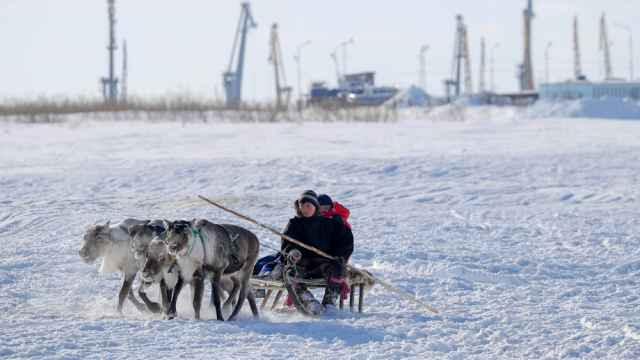Researchers who found the body of a 42,000-year-old foal frozen in the Siberian permafrost have retrieved liquid blood from the extinct animal that might help bring its species back to life, media outlets reported on Tuesday.
According to The Siberian Times, a group of scientists from Russia and South Korea wants to clone an extinct horse species by extracting DNA from the frozen remains of a foal that died 42,170 years ago in Siberia. The foal's body was found in the permafrost of a Siberian crater called Batagaika in Russia’s republic of Sakha, and was found to be part of the Lenskaya breed which went extinct about 4,000 years ago.
“Samples of liquid blood were taken from [the foal’s] heart vessels,” Dr. Semyon Grigoryev, a leading researcher at the Mammoth Museum in Yakutsk, told the state-run TASS news agency.
An intact, non-deformed and not heavily mummified paleontological find such as this is “extremely rare,” Grigoryev said.
The permafrost and favorable burial conditions also helped preserve the animal’s internal organs and a natural reddish color of its muscle tissues, he added.
“Having preserved hair is another scientific sensation as all previous ancient horses were found without hair,” Grigoryev said.
The team has attempted to extract cells from the foal to create a cloned embryo. If successful, the embryo would be implanted in a South Korean horse. Scientists are also considering using a Yakut horse, an eastern Siberian breed, as a surrogate mother.
The same scientists are reported to be working on restoring to life the giant woolly mammoth.
The foal’s well-preserved remains will be on display for a year at a mammoth exhibition in Japan starting in June, The Siberian Times reported.
Reuters contributed reporting to this article.
A Message from The Moscow Times:
Dear readers,
We are facing unprecedented challenges. Russia's Prosecutor General's Office has designated The Moscow Times as an "undesirable" organization, criminalizing our work and putting our staff at risk of prosecution. This follows our earlier unjust labeling as a "foreign agent."
These actions are direct attempts to silence independent journalism in Russia. The authorities claim our work "discredits the decisions of the Russian leadership." We see things differently: we strive to provide accurate, unbiased reporting on Russia.
We, the journalists of The Moscow Times, refuse to be silenced. But to continue our work, we need your help.
Your support, no matter how small, makes a world of difference. If you can, please support us monthly starting from just $2. It's quick to set up, and every contribution makes a significant impact.
By supporting The Moscow Times, you're defending open, independent journalism in the face of repression. Thank you for standing with us.
Remind me later.






